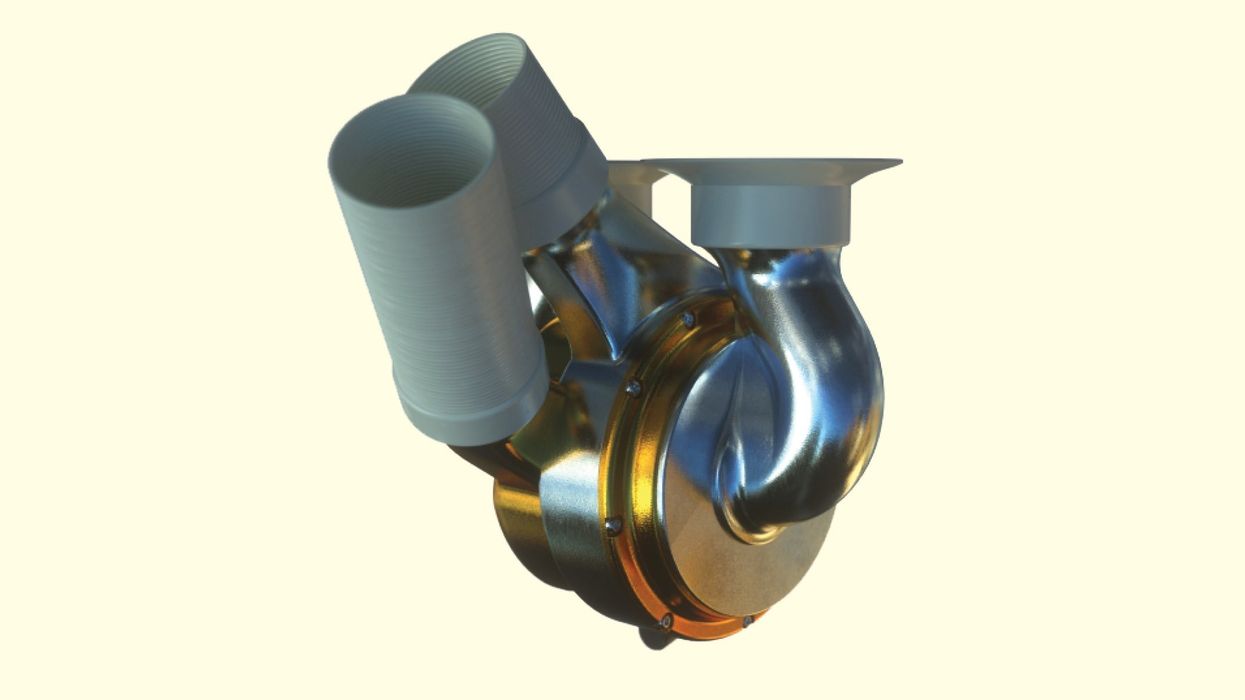THI’s New Artificial Heart Saves Patient’s Life, Furthers Med Center’s Heart-Surgery Lore

A next-gen artificial heart from BiVACOR has successfully been implanted in a patient at Texas Heart Institute. The patient survived more than a week, until a donor heart was found for a transplant.
THE PIONEERING CARDIOVASCULAR inventors and surgeons at The Texas Heart Institute (THI) in the Texas Medical Center have made another huge leap forward in the treatment of heart disease, officially announcing yesterday what they’re calling a “monumental advancement."
On July 9, THI successfully implanted a new kind of artificial heart — created in partnership with the institute’s famed surgeon, O.H. “Bud” Frazier — that can prolong the life of patients waiting for transplants. The Institute says the patient in this case was “bridged to transplant” with the implantation of the BiVACOR Total Artificial Heart, surviving eight days with the device, until a suitable donor heart could be found and successfully transplanted.
The mechanical heart “is a titanium-constructed biventricular rotary blood pump with a single moving part that utilizes a magnetically levitated rotor that pumps the blood and replaces both ventricles of a failing heart,” according to a rep for the Institute. The procedure was conducted as part of an FDA feasibility study. Four other patients are to be enrolled in the study.
“The Texas Heart Institute is enthused about the groundbreaking first implantation of BiVACOR’s [device],” says Joseph Rogers, physician, president and CEO of the Institute and principal in the research. “With heart failure remaining a leading cause of mortality globally, the BiVACOR Total Artificial Heart offers a beacon of hope for countless patients awaiting a heart transplant.” Rogers shared credit for the groundbreaking development with teams at Baylor College of Medicine and Baylor St. Luke’s Medical Center.
Houston CityBook has covered advances in cardiovascular medicine with special interest in recent times, publishing an essay last fall on Frazier’s storied history in the field, and that of other Houston docs like his mentors Michael DeBakey and Denton Cooley. The city has been on the forefront of such developments for many decades.
“A lot of the advances in cardiac surgery occurred here, in this Medical Center,” said Frazier in the essay. He’s been in working on artificial hearts since med school in the 1960s, and also has performed some 1,300 heart transplants — more than any other surgeon on earth. “Not at Harvard or Princeton or Yale. They didn’t do it. I think it was done here because you could do things, and if it failed, you could try again. I don’t think it could have been done anywhere but Texas — and in Texas I don’t think it could have been done anywhere but Houston.”

O.H. “Bud” Frazier, a pioneering surgeon and inventor at Texas Heart Institute, has worked on perfecting the artificial heart since the 1960s. (photo by Jhane Hoang)























